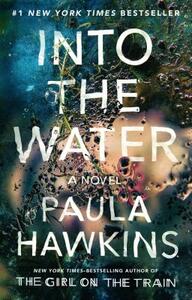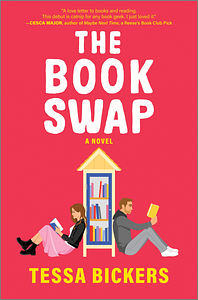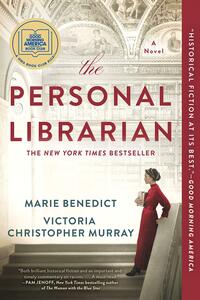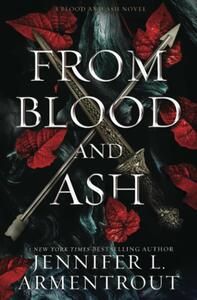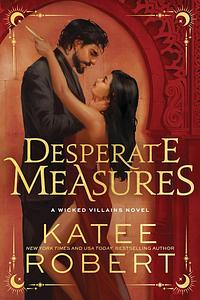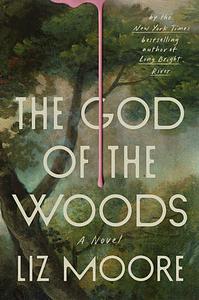You need to sign in or sign up before continuing.
Take a photo of a barcode or cover
wonderedpages's Reviews (184)
Sadie is newly divorced, forty-something, and left reeling after her Hollywood husband trades her in for a younger model. She escapes to Fish Creek, Wisconsin, aka Door County (though I wish the author picked one name and stuck with it), where she’s inherited her grandparents’ run-down lakefront cottage. With the help of some childhood friends and one very hot Irish contractor named Tadhg (seriously, where do I find a Tadhg?), she starts to rebuild more than just her home.
This book is exactly what you’d want to curl up with on a breezy afternoon: heartfelt, gentle, and filled with charming small-town vibes. Sadie’s best friend Aggie steals every scene, she’s fierce, loyal, and hilarious. I absolutely need an Aggie in my life. Tadhg, meanwhile, is basically the blueprint for the perfect man: kind, skilled, emotionally available, and he listens. Swoon.
While the romance is closed-door (just kisses!), it felt a bit rushed for my taste, maybe I’ve just grown used to a little more tension and steam before declarations of forever. Also, calling someone “freeze baby” as a pet name? I cringed every time.
The religious themes were also a bit too prominent for my preferences, and I was disappointed that Sadie handed over ownership of “her” cottage so quickly at the end. After everything she’d been through, I was hoping for a little more independence and a little less “what’s mine is ours now” energy.
But despite those few hiccups, The Cottage still warmed my heart. It’s a story about fresh starts, letting people in, and finding love later in life when you least expect it.
Thank you to Grey’s Promotions for the ARC!
Minor: Death, Infidelity, Misogyny, Sexism, Toxic relationship, Medical content, Grief, Stalking, Car accident, Death of parent, War
Graphic: Confinement, Death, Murder
Moderate: Addiction
Minor: Mental illness, Stalking, Injury/Injury detail
Graphic: Adult/minor relationship, Body shaming, Bullying, Child abuse, Child death, Death, Domestic abuse, Emotional abuse, Fatphobia, Infidelity, Pedophilia, Physical abuse, Rape, Sexism, Sexual assault, Sexual violence, Suicide, Violence, Grief, Death of parent, Murder, Gaslighting, Injury/Injury detail
Moderate: Animal cruelty, Animal death, Mental illness, Misogyny, Kidnapping
Minor: Cursing, Blood, Abandonment
The Book Swap had some standout elements I genuinely appreciated. The themes of grief, forgiveness, and second chances were thoughtfully woven through both main characters’ arcs. Bonnie, Erin’s deceased best friend, may be gone, but her presence echoes throughout the story. Erin literally uses “what would Bonnie do?” to guide her major life decisions, including quitting a toxic job and learning to show up better for the people in her life. James, Erin’s estranged childhood friend, returns to her orbit via a Little Free Library in their London neighborhood. And I mean, come on, that setup is a romcom dream.
The anonymous book annotations between James and Erin were a sweet (albeit slow) way to rekindle a connection. As someone who has seen You’ve Got Mail and read The Reading List, I found the concept cozy and familiar. I also enjoyed the classic literary references throughout like Great Expectations, To Kill a Mockingbird, and The Bell Jar gives the novel a strong backbone for bibliophiles.
But… Erin. Oof. She was hard to root for. Her selfishness and inability to listen made the miscommunication trope so much more grating than it needed to be. James, who is dealing with a bipolar mother, burnout, and a passion for writing, felt far more grounded and emotionally accessible. Meanwhile, Erin consistently ran from conflict and never let James explain, dragging out the “mystery” far too long.
Still, the story ties up neatly in a standalone package (thankfully no cliffhanger or drawn-out series), which was refreshing after a string of duologies and trilogies. If you’re okay with a slow burn, little-to-no spice, and a lead character who might drive you a little nuts, this is a comforting, rainy afternoon kind of read.
Graphic: Bullying, Cancer, Child death, Chronic illness, Death, Mental illness, Suicide, Grief, Abandonment
Minor: Miscarriage, Vomit, Pregnancy, Injury/Injury detail
Romance-wise? It’s sloooow. Like, page-553 slow. And for a 666-page book, that’s borderline cruel. When we finally got spice, it was brief and too polite. Give me something I shouldn’t be reading at work, please and thank you.
Graphic: Child death, Death, Terminal illness, Violence, Blood, Injury/Injury detail
Moderate: Vomit, Grief, Toxic friendship, War
Minor: Infidelity, Sexual content, Fire/Fire injury
Belle’s voice was powerful and deeply human. I felt the weight of her choices, especially in a world built to exclude women like her: Black, ambitious, brilliant, and female. The authors did a phenomenal job conveying how every decision Belle made was layered with sacrifice: her identity, her family, her body, her love. The abortion scene was handled with sensitivity and heartbreak, and it made perfect sense for a woman so fiercely protective of the life she’d built. Her turbulent relationship with Bernard felt maddeningly real, and I was both frustrated by his betrayals and proud when Belle finally chose herself.
The professional side of her life was just as fascinating. Working under J.P. Morgan offered a glimpse into the demanding, high-stakes world of art and rare books. I never thought illuminated manuscripts and auction strategies would rivet me so much! The respect shown to her by Jack Morgan felt like a small but meaningful win, a reminder that her brilliance was undeniable even to those born into privilege.
I only wish the cover had featured her real image. After finishing the book, I immediately went to look up photos of Belle, eager to connect more deeply with the woman I’d just read about. It’s heartbreaking that she chose to destroy her letters. As a librarian, she surely understood the value of primary sources, but as a woman who had to pass as white to survive, I understand her need to protect herself. Still, it’s a tragic loss for history.
This book left me wanting more. I’d read companion novels about her mother, father, siblings, and anyone in Belle’s orbit. Her story was that compelling.
Graphic: Misogyny, Racism, Sexism, Abortion, Cultural appropriation, Classism
Moderate: Addiction, Alcoholism, Death, Emotional abuse, Infidelity, Death of parent, Alcohol
Minor: Bullying, Child death, Sexual content, Slavery, Toxic relationship, Antisemitism, Pregnancy, Lesbophobia, Toxic friendship
Graphic: Adult/minor relationship, Confinement, Death, Emotional abuse, Genocide, Gore, Sexism, Sexual content, Violence, Blood, Grief, Religious bigotry, Death of parent, Gaslighting, Abandonment, Colonisation, Injury/Injury detail, Classism
Moderate: Animal death, Body shaming, Bullying, Child abuse, Child death, Misogyny, Physical abuse, Racism, Sexual assault, Kidnapping, Murder, Sexual harassment
Minor: Cursing, Infidelity, Slavery, Terminal illness, Torture, Toxic relationship, Vomit, Toxic friendship, War
The power exchange between Yasmina and Jafar is the beating heart of the story, and it works. Their relationship is steamy, primal, and consensual, with safewords and fantasies front and center. I especially loved the callback to Raja, her tiger, as their safeword.
I was surprisingly charmed by the Underworld scenes, meeting Hades, Meg (not Hercules Meg), Tink, and Hook gave the world unexpected depth and playfulness. Tink especially stole the show with her sass and fashion sense. And yes, there’s a scene where Jafar makes Yasmina come while holding court with Hook. If you’re here for the spice, you will not be disappointed. The bonus scenes in the luxe edition? Also hot.
While I wasn’t a fan of the “daddy” and “baby girl” kink because it pulled me out of the moment, I appreciated that Robert gave readers a peek behind the curtain in her footnotes, and that she honored a promise, even if it wasn’t my cup of tea. And I loved the author’s forward about breaking away from writing “another love song”, this book feels like an act of creative rebellion, and it’s all the better for it.
Yasmina’s character arc from caged bird to queen in control of her kingdom was satisfying, even if the ending leaned cheesy. It fit the fairytale-villain-vixen vibe so well I didn’t mind. The luxe edition was a treat: red sprayed edges, color artwork, author commentary, and bonus material made this feel like a collector’s item worth showing off.
Graphic: Confinement, Physical abuse, Sexual content, Toxic relationship, Blood, Kidnapping, Murder, Toxic friendship, Injury/Injury detail
Moderate: Misogyny, Sexism
Minor: Vomit, Alcohol, War
The setting of Camp Emerson in the Adirondacks is vivid and layered, a place where generational wealth, blue-collar struggle, and buried secrets converge. I eventually came to appreciate the disjointed storytelling. It mimics how an investigator would piece together a cold case, collecting fragments of truth from various sources until the bigger picture finally emerges. But I needed more tension and less filler for a book pitched as a thriller or mystery.
By the time the story picked up (around page 418), I was fatigued from keeping track of everyone: the Van Laars, the Hewitts, the townspeople of Shattuck, and the investigators. A family tree or character guide would have helped immensely. And while I admire Liz Moore’s ability to flesh out complicated dynamics, especially the imbalance between wealth and dependency, secrecy and survival, I didn’t feel invested in the mystery. When the truth finally unraveled, I didn’t feel shocked or satisfied. I just felt done.
T.J. Hewitt and Investigator Judyta Luptack were standout characters, and I would’ve loved a tighter story centered more squarely on them. While I have never attended summer camp, I can see how the nostalgic setting might enhance the experience for some readers.
If you like a slow-burn literary novel packed with small-town drama, power imbalances, and generational trauma, this might work better for you than it did for me. But for me, The God of the Woods was an overstuffed mystery that didn’t quite earn the emotional payoff it was building toward.
Graphic: Adult/minor relationship, Child abuse, Child death, Misogyny, Sexism, Toxic relationship, Toxic friendship
Moderate: Animal death, Bullying, Chronic illness, Death, Domestic abuse, Emotional abuse, Infidelity, Mental illness, Physical abuse, Forced institutionalization, Blood, Grief, Gaslighting, Injury/Injury detail, Classism
Minor: Addiction, Alcoholism, Confinement, Drug use, Dementia, Death of parent, Alcohol
Graphic: Child death, Death, Genocide, Gun violence, Infidelity, Misogyny, Racial slurs, Racism, Sexual content, Violence, Blood, Antisemitism, Medical content, Kidnapping, Grief, Religious bigotry, Death of parent, Pregnancy, War, Injury/Injury detail


